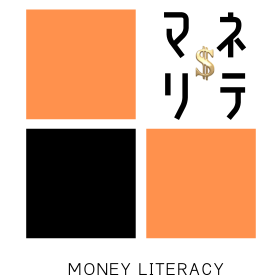Money education
Money lessons to start in high school home economics!
Money classes begin in high school home economics from April 2022.
The Ministry of Education, Culture, Sports, Science and Technology has incorporated the field of 'asset management' into the study guidelines for high school students.*Asset management means managing (trading) one's own assets by investing in stocks, etc. Until now, it has been from the consumer's perspective, such as "don't waste money", but in addition to this, the investor's perspective of "asset formation" has also come to be seen as important.
Some people may feel that asset formation sounds difficult ......, but if you try to study it as an adult, you will not be able to catch up with reality, so understand it while you still can. And asset building is not that difficult and surprisingly easy. You can read more about asset building in our learning content section, so be sure to check it out!
What is money education?
What is money education (hereafter financial education)? The following definition is given.
"Financial education is education to understand the various functions of money and finance, to think deeply about one's own life and society through it, and to develop an attitude that enables one to act independently towards a richer life and a better society, while refining one's way of life and sense of values. "
(Quoted from "The Aim and Basic Characteristics of Financial Education" by the Central Committee for Financial Services Public Relations (CFCP), Ikupport.
It is defined in this way. In other words, the emphasis of education is on the importance of individual action.
Financial education in Japan compared to other countries
USA
Personal finance (personal money planning and management)
→The weekly schedule is set in terms of education.
→Students learn about risk and gain (profit).
UK
Financial education has been compulsory in public schools since 2014.
→ It consists of four frameworks.
- How to manage money
- Becoming a critical thinking consumer
- Risk management and emotions
- The role that finance plays in people's lives
You can see that the UK sees financial education from the consumer's perspective and links it to their lives.
France.
The main focus is on education about bank accounts and investments.
Recently, lessons on Bitcoin have been included in the curriculum.
Financial education in France also touches on the latest areas, such as Bitcoin, and seems to be developing a flexible, future-oriented approach, rather than the rigid education of other countries.
Germany.
They learn about 'Investing, saving and retirement', 'Guarantees and risks', 'Bank accounts and money basics', 'Credit and debt', etc. (mainly by the state, NPOs, etc.)
In Germany, it seems that not only school education but also the state, families and NPOs play a central role in financial education. This is quite generous.
Japan.
In Japan, financial education has been lagging behind, partly due to the prevailing moral attitude that money = impurity and that people should not talk about money in front of children.
In Japan, financial education has been slow to take off.
The policy was made to actually start financial education, even though Japan is behind! However, I think that financial education in the home will become very important in Japan as well. Therefore, those of you who will be responsible for the future should be able to pass on what you learn on this website to your own children and grandchildren. By doing so, I believe Japan's economic future will shine brighter!
What financial education high school students need?
Five things high school students need to know
- Know about the economy
- Know how to save money
- Know how to increase your money
- Know how to protect your money
- Know how to spend money
You will learn about each of these topics in the learning content. Get the learning content in your head while you still can!
Why is financial education necessary?
Why financial education is necessary [Summary].
The reason why financial education is necessary is that in a society that will continue to develop and become more complex, literacy will enable fair economic activity.If we go out into the world without learning anything, we could end up living without knowing 'about insurance', 'about investment', 'how to save', 'about asset building' or 'how to use money'. To avoid this, learn the basics from early on through this website and others!

There are many large companies in the USA that represent the world, but the ideas that form the basis of these companies were drilled into our brains during the education process.